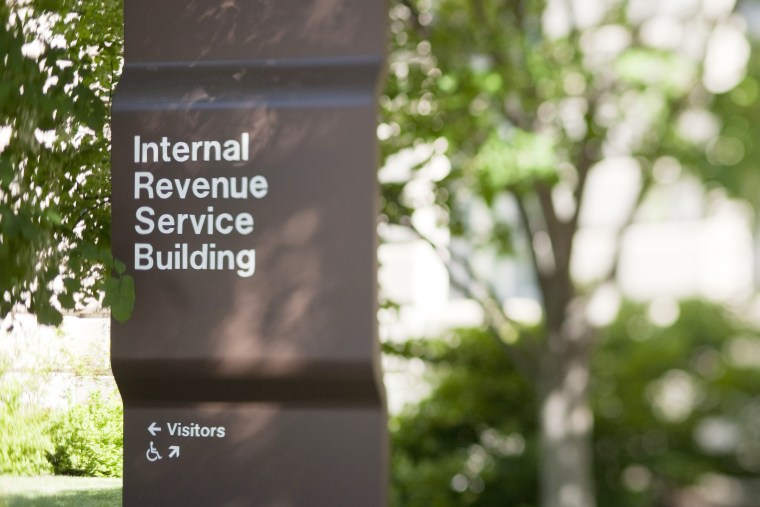Throughout his presidency, Donald Trump has been content to leave may key posts throughout the executive branch empty, at times even bragging about his personnel moves -- or in this case, lack thereof.
But when it comes to the IRS, the president has been far more engaged. The New York Times reported overnight:
President Trump earlier this year asked Senator Mitch McConnell, the majority leader, to prioritize a confirmation vote for his nominee to be the chief counsel of the Internal Revenue Service, indicating that it was a higher priority than voting on the nomination of William P. Barr as attorney general, a person familiar with the conversation said.White House aides insisted for months that the confirmation of the nominee, Michael J. Desmond, a tax lawyer from Santa Barbara, Calif., was a top priority after passage of the tax bill in 2017.But the request by Mr. Trump, made to Mr. McConnell on Feb. 5, raised questions about whether the president had other motivations.
The current president's penchant for secrecy surrounding his finances is well documented. As many Americans probably know, for example, Trump was the first major-party presidential nominee since Watergate to refuse to disclose any of his tax returns.
It's against this backdrop that Trump tapped Charles Rettig to oversee the IRS -- the same Charles Rettig who wrote a piece for Forbes in 2016 arguing that Trump shouldn't disclose his tax returns. (The IRS commissioner also, incidentally, owns a unit in a Trump building.)
He then nominated Desmond to be the IRS's chief counsel, and as the Times' report added, there are some notable connections between the nominee and the president, too.
In July, when Mr. Desmond was first being considered by the Senate Finance Committee, Bloomberg reported that he had briefly advised the Trump Organization on tax issues before Mr. Trump took office. James Wilkinson, a spokesman for Mr. Desmond, told Bloomberg that Mr. Desmond had helped with "a discrete reporting matter for a subsidiary company that was resolved with no tax impact."In private practice, Mr. Desmond worked for a time alongside William Nelson and Sheri Dillon, who currently serve as tax counsels to the Trump Organization.
With this background in mind, it's of interest that the president urged Senate Republican leaders to prioritize Desmond's nomination -- with the White House seeing it as even more important than Bill Barr's.
Desmond, confirmed to his post six weeks ago, will very likely play a direct role in dealing with congressional efforts to access the president's returns.
Some might wonder whether Trump, well aware of Democrats' interest in his secret tax materials, took a special interest in Desmond's nomination because he's concerned about the IRS's future decisions that will affect the president directly.
